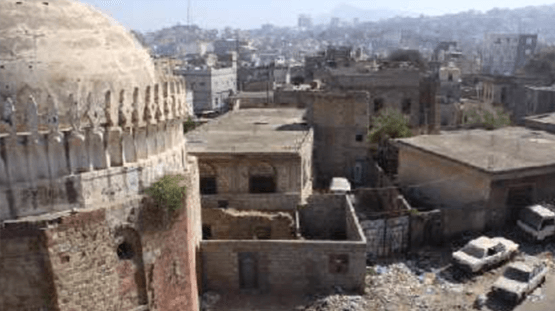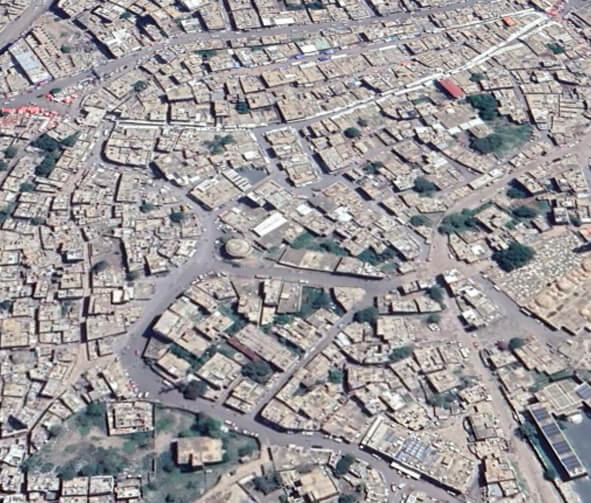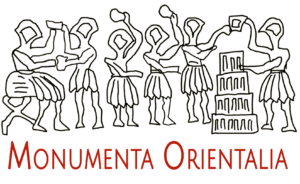
Al-Ḥusayniyyah Dome – Ta‛izz
قبة الحسينية- تعز
Monument description
It was a Mosque in which the five daily prayers were held, and it was also a Koranic School. The original function of the Monument has changed over the years several times, as it was used between 1918 and 1962 – after the departure of the Turks – as a storehouse for weapons, and then for fuel and vehicles tires of the government transport. In 1962 it was emptied.

Architectural and cultural value
Construction style and built date: This monument is an octagon building with a raised dome, with a southern entrance and a Prayer Hall with no extensions. Historical sources mention that when the young Prince Hussein bin Hassan Pasha, Prince of Ta‛izz and its territories and lover of palaces and orchards, died in 1002 AH /1594 CE, he was buried in the city, and three days later Sinan Al-Kikhia, the father’s assistant, took him out of his grave to bury him near the orchard in a tomb with a huge dome erected on an octagonal base, near the Mudhafari School. To build the Monument, it was necessary to demolish the surrounding buildings in order to create a garden around the Dome. A high wall of stones was built surrounding the Monument and the orchards. Al-Hussein bin Hassan Pasha took power over the city of Ta‛izz between 1591 and 1594 CE. Governor Sinan Al-Kikhia has endowed all lands and orchards surrounding the Dome in the interest of the needs of the Dome itself, the jurists working in it, and people residing in it.
Components of the Mosque: The Monument is composed by a Prayer Hall with no extensions. The monument area is 95m2.
- Justifications for intervention:
- 1. Most of the decorations in the interior dome surface have suffered decay, damages, negligence and continued fading, and some are lost forever
2. Deep cracks are evident in the interior and exterior surface of the dome
- Monument conditions and treatment:
-
The current state of the dome is in bad condition due to negligence, and the damages includes:
1. Eroded and missing masonry in the northeastern wall
Treatment: Refilling of gaps in the walls2. Humidity in the northwestern wall
Treatment: A ditch should be dug with 30cm depth and 30cm width to provide ventilation for the walls. A 10cm cut should be made underneath the wall and covered with plaster board with 4 ventilation outlets. The ditch should be partially filled with small stones then covered with a board3. Decayed windowsills
Treatment: Replacing the damaged wood using the same type of wood used in ancient times4. Cracks on the dome surface
Treatment: Maintenance works to replenish the Qudad layer on the dome surface5. Falling and damages to the plaster cladding and decorations
Treatment: Replacing the missing cladding layers and restoration of decorationsUrgent intervention
It is urgent to save this unique monument in the Old City of Ta‛izz in order to restore it to its former glory.

Countries










